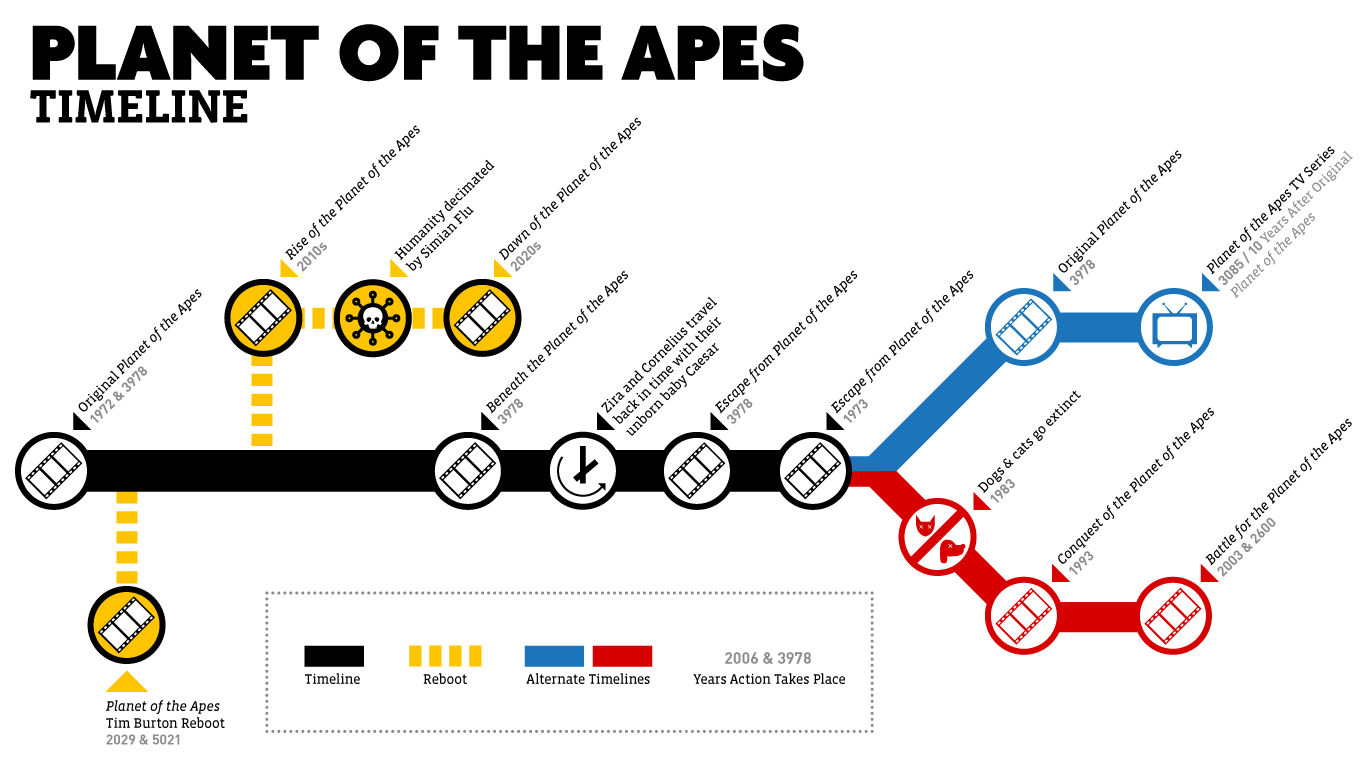Exploring the "Planet of the Apes" Franchise: A Cinematic Journey

Introduction
The "Planet of the Apes" film series is a cornerstone of science fiction cinema, captivating audiences with its imaginative storytelling and thought-provoking themes. Spanning over five decades, this franchise has explored complex issues such as humanity, evolution, and societal collapse, all through the lens of a world where apes are the dominant species. In this article, we delve into each movie in the series, examining their impact, themes, and contributions to the genre. Whether you're a long-time fan or a newcomer curious about this iconic saga, this comprehensive guide will enhance your understanding of the "Planet of the Apes" universe.
The Original Series (1968-1973)
Planet of the Apes (1968)
The journey begins with the groundbreaking 1968 film "Planet of the Apes," directed by Franklin J. Schaffner. Starring Charlton Heston, this movie introduced audiences to a dystopian future where apes have evolved into the dominant species. Key themes include the dangers of nuclear war and the exploration of human nature. The film's iconic twist ending, revealing the ruins of the Statue of Liberty, remains one of the most memorable moments in cinematic history.
Beneath the Planet of the Apes (1970)
The sequel, "Beneath the Planet of the Apes," continues the story with astronaut Brent (James Franciscus) discovering an underground city of telepathic humans worshipping a nuclear bomb. This film delves deeper into themes of war and peace, highlighting the self-destructive tendencies of humankind.
Escape from the Planet of the Apes (1971)
In a clever reversal, "Escape from the Planet of the Apes" follows ape astronauts Zira and Cornelius as they travel back to 1970s Earth. This installment explores themes of prejudice and fear of the unknown, as the apes face discrimination and hostility from humans.
Conquest of the Planet of the Apes (1972)
"Conquest of the Planet of the Apes" offers a darker narrative, depicting the rise of Caesar, the first talking ape, as he leads a rebellion against human oppressors. This film is a commentary on civil rights and the struggle for equality, drawing parallels with contemporary social movements.
Battle for the Planet of the Apes (1973)
The original series concludes with "Battle for the Planet of the Apes," where Caesar strives to maintain peace between humans and apes in a post-apocalyptic world. The film emphasizes themes of coexistence and reconciliation, offering a hopeful vision for the future.
The 2001 Reimagining
Planet of the Apes (2001)
Tim Burton's reimagining of the original story brought a fresh perspective to the franchise. While it featured impressive visual effects and makeup, the film received mixed reviews due to its convoluted plot and lack of depth. However, it did succeed in reintroducing the franchise to a new generation of viewers.
The Modern Trilogy (2011-2017)
Rise of the Planet of the Apes (2011)
Directed by Rupert Wyatt, "Rise of the Planet of the Apes" serves as a reboot, exploring the origins of the ape uprising. The film stars James Franco as a scientist whose experiments lead to increased intelligence in apes, particularly Caesar, portrayed by Andy Serkis. This film is praised for its emotional depth, compelling storytelling, and groundbreaking motion-capture technology.
Dawn of the Planet of the Apes (2014)
"Dawn of the Planet of the Apes," directed by Matt Reeves, builds upon the foundation set by its predecessor. Set in a world ravaged by a pandemic, the film explores the fragile peace between humans and apes. It delves into themes of leadership, trust, and the consequences of fear, offering a nuanced portrayal of both species.
War for the Planet of the Apes (2017)
The trilogy concludes with "War for the Planet of the Apes," where Caesar leads his fellow apes in a battle for survival against a ruthless human army. The film is a poignant exploration of sacrifice, redemption, and the cost of war. Andy Serkis delivers a powerful performance, cementing Caesar as one of the most iconic characters in the franchise.
Conclusion
The "Planet of the Apes" film series is a testament to the power of science fiction to explore complex themes and challenge societal norms. From its origins in the 1960s to the modern reboots, the franchise has captivated audiences with its imaginative storytelling and thought-provoking narratives. Whether examining the dangers of unchecked scientific ambition or the complexities of human nature, each film offers a unique perspective on the human condition. As we reflect on the franchise's legacy, it serves as a reminder of the enduring appeal of thought-provoking cinema and the timeless allure of a world where apes reign supreme.
As you explore the "Planet of the Apes" universe, consider how its themes resonate with today's world and what it reveals about our own society. Whether you're revisiting the classics or discovering the series for the first time, this cinematic journey promises to entertain, challenge, and inspire.